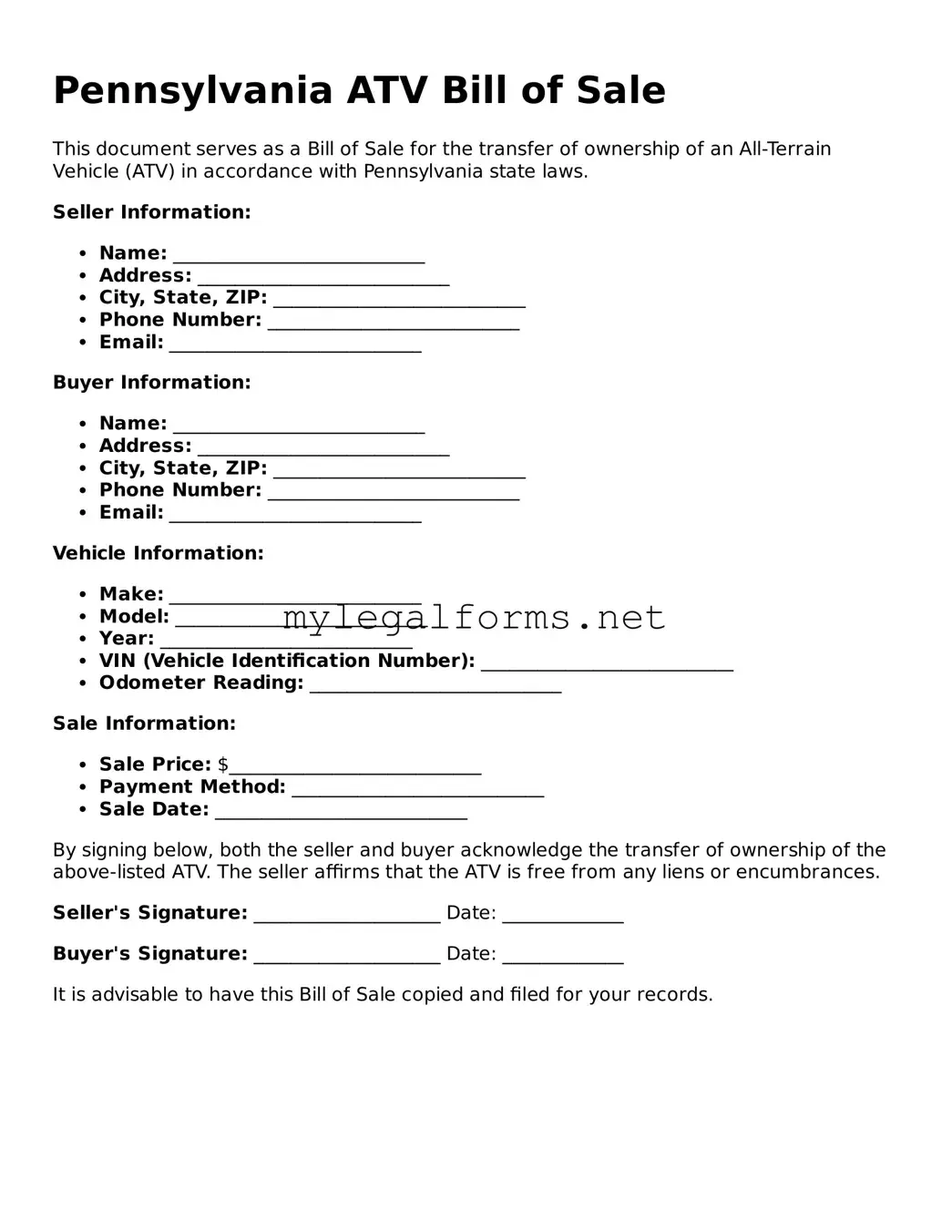ATV Bill of Sale Document for Pennsylvania State
The Pennsylvania ATV Bill of Sale form is a crucial document that facilitates the transfer of ownership for all-terrain vehicles in the state. This form serves as proof of the transaction between the buyer and seller, ensuring that both parties have a clear record of the sale. Understanding its importance can help individuals navigate the process of buying or selling an ATV with confidence.
Launch ATV Bill of Sale Editor

ATV Bill of Sale Document for Pennsylvania State
Launch ATV Bill of Sale Editor

Launch ATV Bill of Sale Editor
or
⇓ PDF Form
Complete the form at your pace — fast
Finish your ATV Bill of Sale online and download the final version.